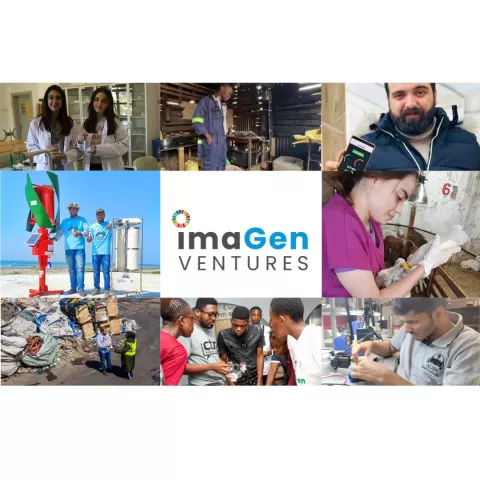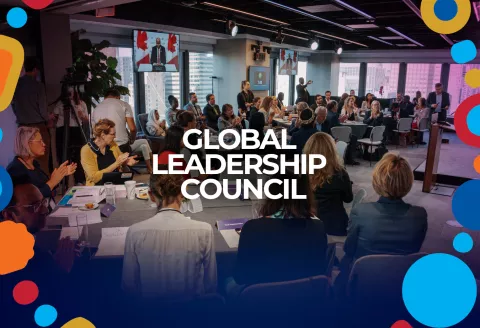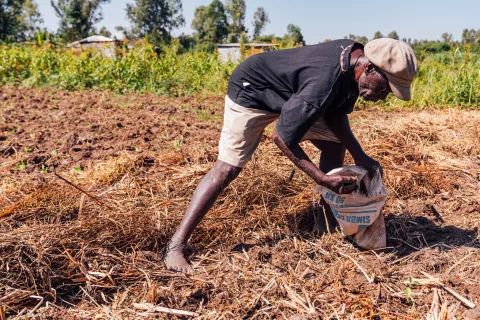Young Kenyan founds organization to provide relief packages to residents of informal settlements
Wevyn Muganda shares how she helped her community during COVID-19
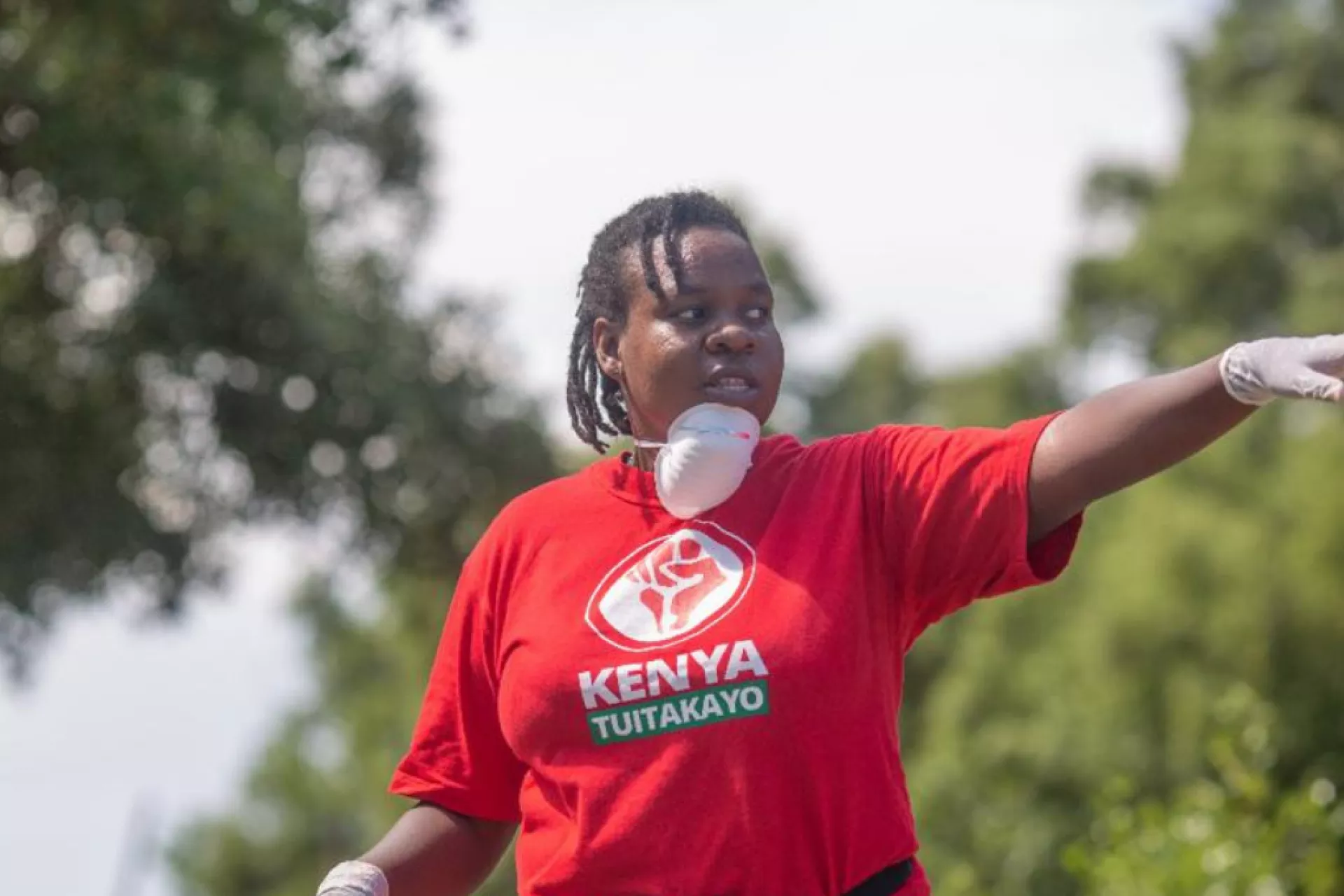
When the pandemic hit her home country, Kenyan youth activist Wevyn Muganda noticed that the crisis wasn’t just posing a health challenge, but was also exacerbating existing challenges that Kenya was facing. During the early months of the pandemic, 40% of the population in Kenya were unemployed. Poverty increased among families, crime rates skyrocketed, and a mental health crisis ensued.
With a strong passion for social work and community aid, Wevyn felt compelled to act and help her community weather this unprecedented storm.
“When you are a leader in your community, during times of uncertainty, that is when your leadership comes out,” says Wevyn. “COVID prompted me to act and lead an organization during the crisis. Communities in Kenya needed me. They needed someone to take the initiative.”
Striving to help those most in need, Wevyn reached out to her colleague and community organizer, Suhayl, to support communities living in informal settlements in Kenya with their needs. Most residents there work on a daily wage, which means that when COVID hit and social distancing measures came in place, people struggled to get water and food on the table.
Together, Wevyn and Suhayl created the “Mutual Aid Kenya” organization aiming to provide basic necessities such as bread and milk to those most affected by the crisis. They quickly expanded the initiative to provide full meals, relief packages, sanitation supplies, and school materials.
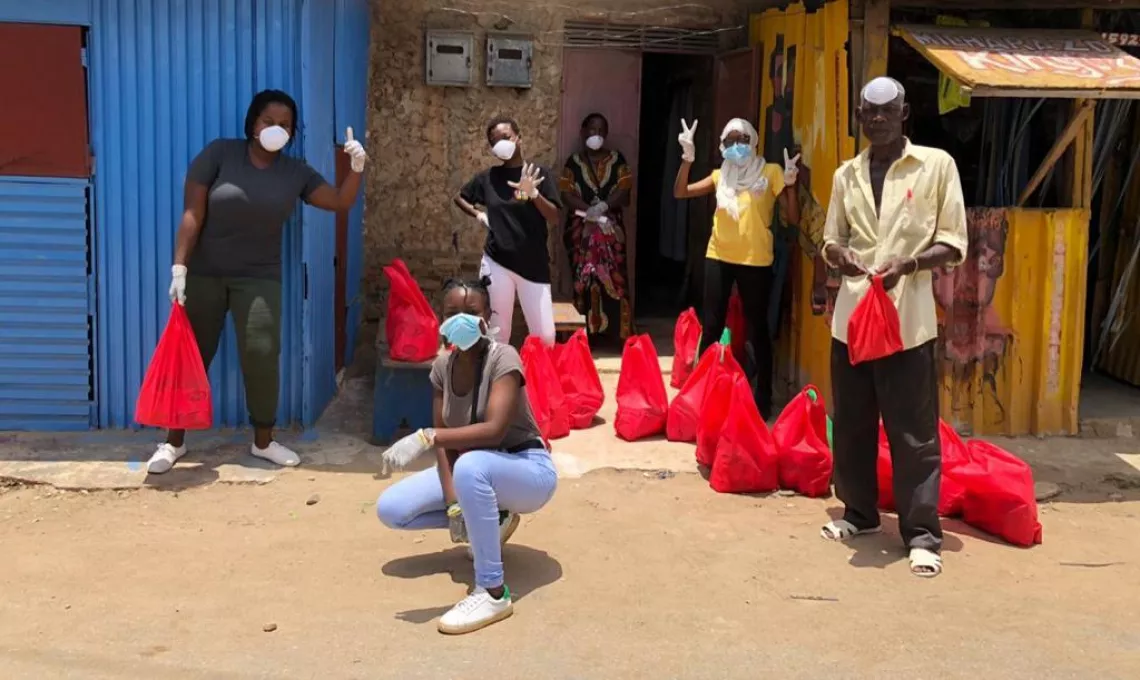
Using social media to mobilize young people and financial resources, the team recruited more than 120 volunteers. Their work was entirely funded by the community: small groups and neighbours came together to donate food, books, and other materials. In the course of three months, they raised some USD 20,000.
To support families in need, “Mutual Aid Kenya” created a hotline where people could call or send a text to manage cash transfers. Wevyn wanted to give the community autonomy over what they require most, thereby making humanitarian aid become more about providing communities exactly the care they identify as a pressing need.
Reaching 3,000 families
Wevyn said that as domestic violence and child abuse rates increased during the pandemic, she began to hand out flyers, raising awareness on what constitutes abuse and where to report it.
Mutual Aid Kenya volunteers also reached out to communities to ask them how they would like to see Kenya’s government responding to their needs during the pandemic and what they considered as most urgent. With this material, they prepared a memorandum and presented it to the Senate to increase social-political participation.
From March to August 2020, within just four months, the organization managed to reach close to 3,000 families in eight different settlements.
“Now we need to move to the next step in terms of what are some of the sustainable options for them to continue to receive this support, not in terms of aid, but empowerment, so connecting people to opportunities, connecting people with information, and any other or maybe connecting them to psychosocial support services.”
'Start with what you are doing'
Currently, Wevyn runs an organization called Isirika. They intend to bring together young people and then build a community network where people help each other to get through the consequences of COVID-19.
Wevyn is working to build stronger systems and stronger communities, so that Kenyan families across informal settlements will be better prepared to face future crises that might arise.
“Usually, when people say I want to do something, but I don't know where to start, they already know what they want to do. So I'd say start with what you're doing,” says Wevyn. “But also, on social media, it's very easy to find organizations that are working on COVID-19 response.”
“There's always something to do, especially with community organizations, I always encourage people, please reach out to your local neighbourhood or community organizations because they have no funding. And if you don't want to work directly with organizations, you can amplify the voices of those who are doing this work. A simple retweet a simple share, a simple like a simple comment can go such a long, long way. And finally, you can counter misinformation and disinformation online.”

